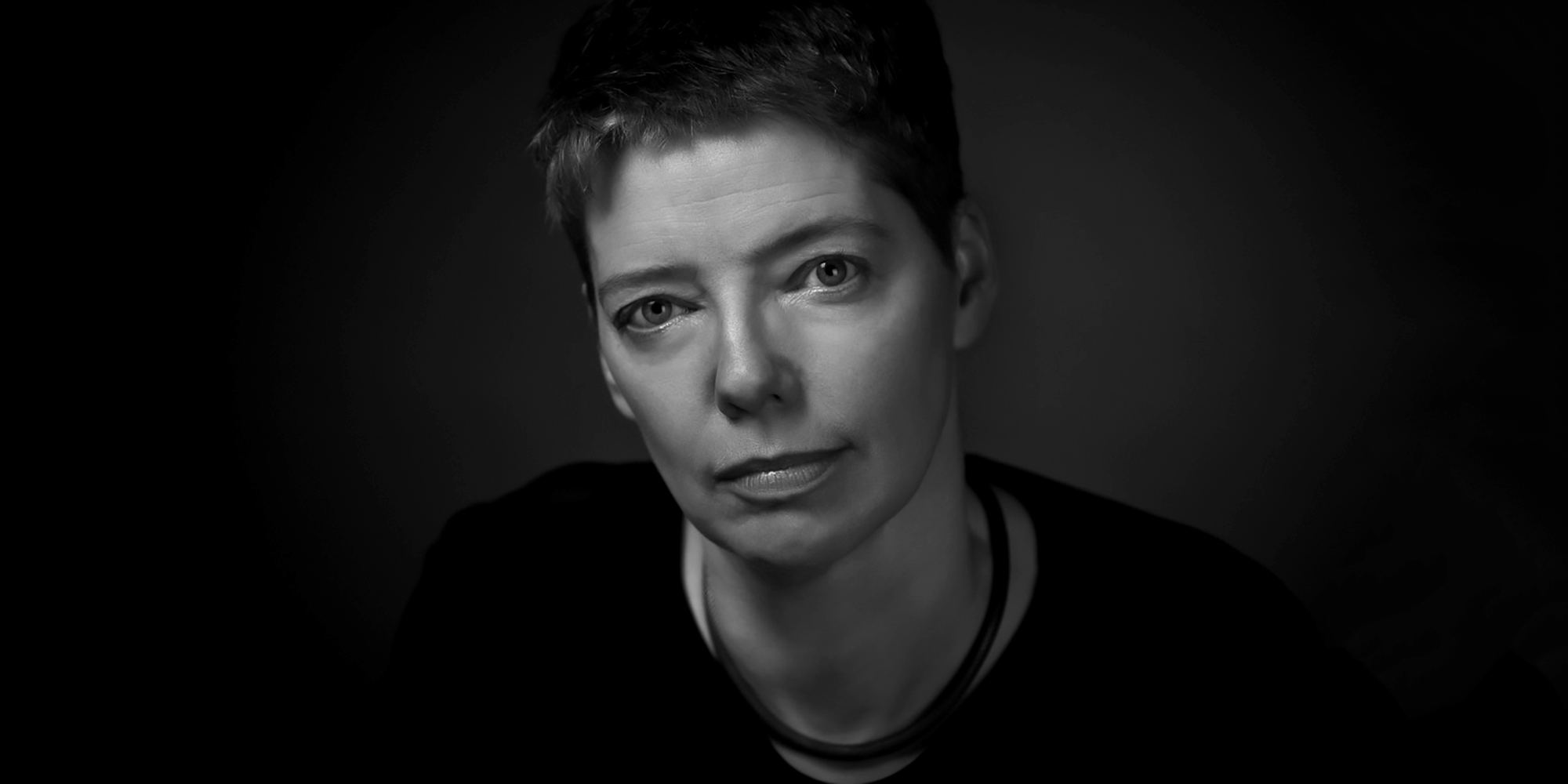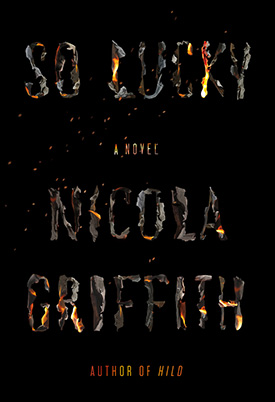I was diagnosed with MS in 1993; I’ve never hidden its physical effects. I publicly used a cane, then double crutches, and now a wheelchair and my official bios, including on the flap copy of my 2013 novel, Hild, are clear about the fact that I have MS. But I never identified as disabled. In my April 2016 blog post “Coming Out As a Cripple,” I explained why it was time for me to talk about disability as a political and relational issue. (Disabled is a relative term; cultural norms vary.) This was no longer about MS as a medical problem, no longer about my physical impairments. What was suddenly and stunningly clear was that the problem was cultural attitudes and built environments. The problem was ableism.
I tweeted to signal-boost the post, and soon found myself talking to a handful of other disabled people. What should I read? I asked. They gave me lists of memoirs. But where’s the fiction? I wanted to know. I got a few suggestions for YA fiction. But what about fiction for adults? I got a list of novels to absolutely avoid (on top of almost everyone’s list: Me Before You, by JoJo Moyes). Yes, that’s great, I said. But where are the role models, disabled people having a good time and fine life? Having adventures, falling in love? Where are the disabled people in space, on the high seas, having angsty affairs, wandering about in experimental novels, identifying murders with their forensic skills, living a life of ennui in Brooklyn? Where the hell is the #CripLit??
A few other people started using the #CripLit hashtag to talk about the empty space where disability fiction should be. We need a Twitter chat, I said. While I was thinking about all the work involved, and quailing—I’d just started a PhD and my plate was full—Alice Wong of the Disability Visibility Project got in touch and said: I love this idea! Want to work on it together?
Alice and I co-hosted the first formal chat on disabled writers and disabled characters on Sunday, July 23, 2016. I was expecting an hour of leisurely back-and-forth, sipping from an interesting pool of disability literature with a score of aficionados.
It was like trying to sip from a fire hose. Within 10 minutes #CripLit was trending, as a raging torrent of pent-up need for representation tore through the Twittersphere.
• • •
Growing up, I hadn’t seen disabled queer women in real life—or on page or screen—at all. And when finally I began to see disabled characters in books and on screen, they were distorted clichés: tragic cripples, angry cripples, helpless cripples. Cripples whose bodies, like those of queer people, were portrayed as sites of difficulty rather than delight. In other words, the only disabled people I watched or read were written by the nondisabled, who had no fucking clue, and so were just reinforcing the ableist narrative. So that’s what I absorbed and internalized.
When finally I began to see disabled characters in books and on screen, they were distorted clichés: tragic cripples, angry cripples, helpless cripples. Cripples whose bodies, like those of queer people, were portrayed as sites of difficulty rather than delight.
I believe that today the majority of disability fiction for adults is roughly where queer fiction was sixty years ago: full of protagonists who are remarkable only as pitiful creatures crying out to be treated as human, and relying on the forbearance of strangers.
Last year, Kenny Fries formulated the Fries Test for disability in fiction. He asked:
Does a work have more than one disabled character? Do the disabled characters have their own narrative purpose other than the education and profit of a nondisabled character? Is the character’s disability not eradicated either by curing or killing?
The disabled characters don’t have to have names; they don’t have to talk to each other—and don’t even think about suggesting they should talk to each other about something other than disability. The Fries Test is a low bar.
Nonetheless, late last year I put out a call on my website for book-length fiction that passes the Fries Test. Six months later, I have exactly fifty two. Some of these are old, some out of print, and a handful aren’t even in English.
According to the Stanford Literary Lab’s best estimate, the number of novels extant in English is about 5 million. Given that 1 in 5 people in majority English-speaking countries are disabled, to fully represent disabled readers, there should be 1 in 5 novels in English that pass the lowest bar for disability representation.
Think about that. There should be one million novels that pass the Fries Test. I can only find 52.
• • •
We have had ten #CripLit chats, ranging from Editor Roundtables to Intersectionality, Futurism, and Accessibility for Writing Workshops. They are always planned and hosted by Alice and me. Alice takes care of the backend—scheduling the questions, archiving the chats on Wakelet—and I usually invite any co-hosts and often plan and write the questions. We publish the questions at least a week before the chats so that the neurodiverse among us can have time to absorb and process the information.
In between the chats there’s a relaxed, low-volume conversation: writers signal boosting their work on Twitter and readers linking to new publications of interest. I have a growing sense of community, of an approaching critical mass, a tipping point. Change is coming.
The scaffolding of culture is story. We don’t know who we are until we can tell a story about ourselves.
Change comes from cultural conversation. The scaffolding of culture is story. We don’t know who we are until we can tell a story about ourselves. Stories help us understand we are not alone.
But it’s a chicken-and-egg situation: stories help us know we’re not alone, but to write stories we need to know that we’re not just a voice calling into the void: that others are calling out, too. Once we know others are there, we can find our way to harmony, build a chorus that will change the world.
That’s what #CripLit is for.
Our next chat, a conversation between myself and author Anne Finger about our new novels, and a discussion of other new #CripLit, will be held on Saturday, May 19, 2018, at 7pm EST. Join us.
Nicola Griffith is the multiple-award-winning author of several novels, including Hild, and a memoir. A native of Yorkshire, England—now a dual U.S./U.K. citizen—she is a onetime self-defense instructor who turned to writing full-time upon being diagnosed with multiple sclerosis. She lives with her wife, the writer Kelley Eskridge, in Seattle.

